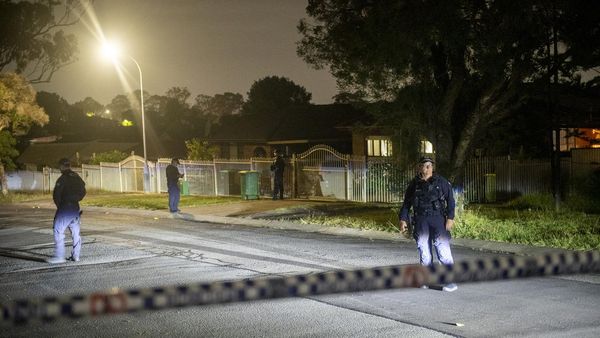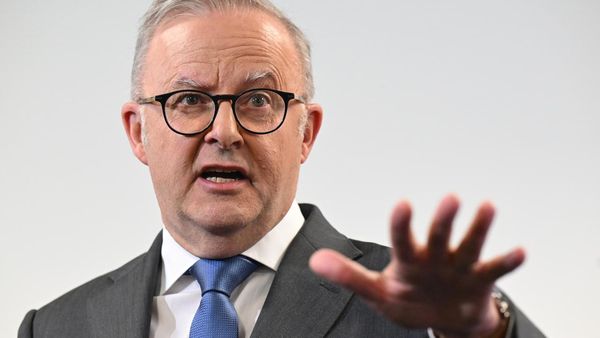A presenter and social media influencer has spoken out about her complex relationship with social media and how she's taken steps to make it a more positive space for herself and her followers.
Jess Davies, 29, who is from Penrhyn-coch near Aberystwyth, has been involved with the NHS Wales ‘Help Us, Help You’ campaign to speak about her mental health challenges and the negative role that social media can play. She explained that the negative feelings often stem from comparing herself to others online and how taking breaks away from screens, being kinder to herself, and putting things into perspective by getting outside in nature and talking to others has helped.
In the past, social media led Jess to feel under pressure to conform to the idea of "looking perfect". She said: "I’ve been on social media since I was 18 and I think since growing up around social media it can really have an effect on your mental health and self-worth - we’re not just comparing ourselves to the girls in our class or at work, it opens us up to millions of people online. For me I struggled to put up a barrier for my real life and online - I was checking my phone constantly, searching for validation and likes, worrying about how I looked, and whether I should be editing my photos, so it really affected my mental health."
Read more: Sean Fletcher's life 'changed' after working on new series
Previously Jess worked on a documentary Drych, with S4C, speaking about the use of social media and subsequently our increasing reliance on technology. In the documentary she also shared the difficult time in her life when she suffered from an eating disorder. You can read more about that here. Speaking to WalesOnline, she said that social media "played" into her self-worth. She added: "I was accessing certain websites and limiting what I ate, really worrying about my body and the way it looked, especially at 16/17 years old, which I’ve come to understand really does affect a lot of young people. I think it’s really important that people who are struggling know where they can get help from.
"I turned to my family and friends and they helped me. It was having someone to talk to about that which helped me. The old saying of a problem shared is a problem halved - which really was the case for me."
Jess said that during that difficult period, she spent a lot of time outside in nature with family and friends. She added: "Now, fast forward all these years, social media still affects me, and I still try to work through the way I look and self-worth, but I decided two years ago that I wanted to post content that I would like to see online and try to have a more positive effect on young girls.
"I no longer edit my body and I’m all about showing that it’s ok to have imperfections that we’re told are imperfections - like cellulite - and that’s just a small thing I wanted to try and do, because I know when I access social media and see this perfect image it makes me question myself and compare myself to others."
Jess posts natural, organic photos that aren't edited or typically posed on her social media platforms. She said: "I was worried about sharing it because it isn’t something that you see every day on social media. Of course there are lots of social media influencers that post that content, but it isn't the norm on there. I was really worried about posting but actually there were a lot of positive responses, especially from women."
Jess added that the positive response gave her the confidence and motivation to continue posting content that helps her followers and other people feel positive about themselves. She has had a complex relationship with social media but now uses it to promote positive mental health and has found an "online tribe".
She said: "I have to be on all social platforms every day [for work] but for me, it was realising what trigger points were making me feel bad about myself and then unfollowing those certain accounts - it's nothing personal but I just felt that I didn’t need to see that every day and only follow people who were putting positive content out there. I wanted to contribute to that and be someone people wanted to follow because of the content I was putting out there."
But despite this, Jess still receives a lot of pushback from certain individuals, mostly men, when it comes to posts she puts about women's rights on social media. She said that she can still get "caught up" in negative comments but reminds herself that the positive purpose of the content outweighs the negative.
To protect her mental health, Jess highlights the importance of stepping away from a screen and social media. A tip she suggests is logging out of your social media apps, so when you go to click on them, you have a barrier in place to make you think "is it worth it?" She said: "When I automatically go to grab my phone - which I still do all the time - I see that I’m logged out and then there’s that two-second barrier of ‘oh do I need to go through the effort in logging back in again for a scroll?’
"It is really difficult and something I struggle with all the time, and I know a lot of people also struggle with their screentime and use social media in an unhealthy way. I have a certain time limit on my phone for certain apps and its things like that which can help our day-to-day lives."
Jess is now working with the NHS Wales ‘Help Us, Help You’ campaign, which aims to encourage and enable people to prioritise and improve their health. The collaboration with Jess aims to remind people to take care of their mental health and signpost to services such as CALL, the mental health helpline for Wales.
There are small things that we can all do help protect our mental wellbeing, including:
- Taking breaks away from social media
- Getting outdoors and connecting with nature
- Being kinder to yourself
- Staying connected with, and talking to, friends and family
- Doing things you love
- Getting enough sleep
But if you’re struggling then it’s important to talk to someone about how you’re feeling – it can be a friend, colleague, or family member, or you can call the Mental Health Helpline, CALL, for confidential mental health support. Call 0800 132 737 or text ‘help’ to 81066.
If you’re aged 16 or over living in Wales and are experiencing mild to moderate anxiety, depression, or stress then you can access a free online therapy service through SilverCloud without needing to go through your GP.
Read next:







